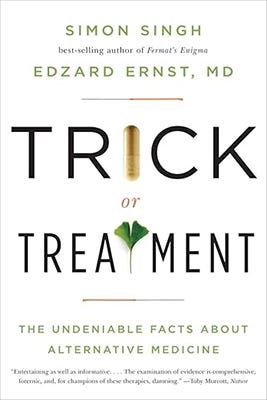Hello there! Matt here from MessageUp.
Welcome to the September edition of our newsletter, where you’ll find:
Our latest business updates.
A discussion on the importance of marketing experiments.
Summaries of our latest blog posts, the most recent of which explores how B2B businesses should balance their efforts between marketing to individuals, account-based marketing, and marketing to buying committees.
A book review (from outside the typical marketing literature).
Three article reviews, covering digital marketing fatigue, account-based marketing, and measuring audience connection.
Hopefully you’ll find something here that’s relevant and helpful to your B2B marketing efforts.
As always, you can see more of our content on LinkedIn.
Thanks for spending a slice of your precious time with us!
Cheers,
~ Matt
Business Update
August was August. Hot, humid, and impacted by holidays.
Nevertheless, we accomplished plenty with our clients, including setting them up for the third quarter conference season. With all manner of organizers trying to wedge their events between the end of summer holidays and the onset of year-end festivities, September and October are perennially trade show heavy.
Internally, we’ve been developing and promoting our B2B Marketing Tune-Up, which will run from early October to early December.
We’re testing the idea that some B2B companies (and leaders) are hesitant to commit the time and money required for a full strategic marketing program and would instead benefit from a lower-cost introduction, blending group and individualized learning.
The program will allow B2B leadership teams to work rapidly through the key elements of a marketing assessment, making minor adjustments as they go and taking note of any significant changes they might want to make after the program.
This program will be especially relevant to businesses that are either (i) preparing to fundraise, or (ii) have recently secured investment and are preparing to embark on strategic marketing, or (iii) have been marketing the same way for a while and are ready to take their approach to the next level.
If any of those sounds like your company or a company you know, you can find more details and the application link on our website.
Quacks, Hacks, and Trials
Or: Some Parallels Between Medicine and Marketing
I like to read a broad range of (mostly) non-fiction titles. Probably half are related to business leadership, while the rest span the gamut from rescuing Lucretius’ De Rerum Natura (On the Nature of Things) from the brink of oblivion in the 15th Century, to the nefarious world of generic medicine and regulatory approvals.
This month’s book review (coming later in this newsletter) highlights one such foray beyond the boundaries of business and marketing, which also took me into the realm of medicine—alternative medicine, to be exact.
Whatever your pre-existing beliefs and experiences, there’s plenty of speculation and uncertainty when it comes to the efficacy of medical treatments—both those labeled ‘conventional’ and those identified as ‘alternative’.
Until the twentieth century, medical science consisted mainly of primitive techniques and remedies passed down through folklore, constrained by mankind’s limited knowledge of how the body worked.
Since then, tremendous strides have been taken in understanding how our bodies function, and how diseases and other ailments are caused and can be treated.
With the advent of synthetic biology, we are about to enter another period of rapid evolution in both preventative medicine and treatments.
Nevertheless, the world still teems with people fervently advocating for treatments that, to a scientific eye, are utter nonsense. We call the proponents of such ‘medicine’ Quacks and their practice Quackery.
There are also a wide range of alternative therapies—so called because they don’t conform to our biological and chemical understanding—to which millions of people turn because of their claimed benefits.
These include acupuncture, which claims to adjust the flow of ‘Chi’ (life force) through the body, chiropractic, which claims to correct the bodies ‘internal energy’ by realigning the spine, and homeopathy, which claims that massively diluted remedies—which contain no trace of the original active ingredient—can treat all manner of symptoms thanks to the solution ‘remembering’ what it contained prior to dilution.
To discriminate between quackery and beneficial medicine, we have evolved the concept of the clinical trial. The gold standard by which medical claims are now judged—whether concerning the efficacy of a new drug or the validity of an ancient remedy—is the randomized, placebo-controlled, double-blind trial.
This involves randomly assigning patients to groups that will either be treated with the therapy under test or a placebo—an inactive treatment that is hard to tell apart from the therapeutic treatment—and where neither the patient nor the examining physician knows which group they are in.
In many cases, including those of acupuncture, chiropractic, and homeopathic treatments—as well as more arcane practices, like blood letting—properly controlled clinical trials have confirmed negligible medical benefit.
The same is true of many modern drug candidates, where insufficient benefit is observed relative to the associated risks, and they are abandoned.
So, why am I writing all of this in a newsletter about B2B marketing?
I find the parallels rather striking.
We are inundated by outlandish claims about approaches and tricks (a.k.a. ‘hacks’) that will remedy our go-to-market ailments and propel us to excellent business health.
Thousands, if not millions, of marketers follow them. Billions of dollars are spent on them. And in many cases, they do nothing (at best) or even cause harm.
How are we supposed to tell the quacks from the genuine marketing ‘doctors’?
Why, the randomized, placebo-controlled, double-blind trial, of course!
I’ve written many times about marketing being a game of experiments. The only way to find out what works is to compare different approaches and measure the impact.
Are marketing experiments randomized? Usually, yes. We don’t control who visits which version of a web page, or which version of an ad or post is shown to a user by the search or social media algorithm.
Is there such a thing as a placebo effect in marketing? I think there can be. Simply investing more time and effort into the same marketing approach can drive up its performance, at least temporarily.
A placebo-controlled experiment is simply one where some participants (e.g., website visitors) see the status quo, while others see something different. We often call this an A/B test.
Can we blind the participant and the examiner, so that they don’t know which visitors are in which group?
Conveniently, yes, this is done for us automatically when we ask our friendly social media or search algorithm to randomly assign versions of our content to different members of the same audience.
We, the examiner, never know who saw what. We only see the aggregated results via our website and social media analytics tools.
Sounds easy, doesn’t it?
So, why are so many businesses still carrying out archaic ‘random acts of marketing’ and falling for the quackery and hacks?
One reason is the same as why people still visit alternative medicine practitioners in spite of mounting evidence that says it does very little for you: inertia. We’re reluctant to accept that an idea doesn’t really work and insist on testing it for ourselves.
Another contributing factor is the relative ease with which we can allow ourselves to be hoodwinked compared to putting in the hard work, performing an objective test, waiting for the results, and then acting upon them.
And, finally, I think there’s an overriding distrust of the establishment. Why listen to scientists when there are always examples to suggest they aren’t right?
Rigorous science isn’t easy, and it is seldom absolute.
There are always some outliers that buck a trend. Quacks point to that one case where their patient made a miraculous recovery.
Rigorous marketing isn’t easy, either, and the results are never absolute.
In marketing, the patient—read: market, customer, product, etc.—keeps changing.
But, if you want to be sure the things you’re doing are delivering a positive return on your investment, you’d better be running controlled experiments to prove it.
If not, you’ll be vulnerable to hacks and quackery. Beware!
Recent Posts on The Framework Blog
Should B2B Marketing Focus on Individuals, Committees, or Accounts (September 4, 2024)
Plenty is written about personalized marketing to individuals, account-based marketing, and marketing to buying committees. So, where should your business focus its efforts?
The answer will depend on the maturity of your marketing efforts and your market understanding.
In this post, we explore this trifecta of marketing approaches and explain how the distribution of your marketing efforts should change as your business learns and grows.
A 3x3 Approach to Ranking B2B Prospects Based on Knowledge and Receptivity (August 7, 2024)
Practices like lead scoring and target persona selection are integral to strategic B2B marketing. They help us to prioritize high-value leads and focus on prospects for whom our solution is likely to be a great fit and deliver the most value.
However, those approaches are usually based on our assessment of the prospect’s need for our solution, budgetary authority, urgency or enthusiasm for making a purchase, and so on.
A different approach involves assessing their current knowledge about the situation and their willingness to change their mind.
In this post, we explore a 3x3 matrix built with those two factors as its axes to discover news ways of prioritizing—and responding to—prospects with very different attitudes toward the information we’re delivering.
Book Report
Trick or Treatment: The Undeniable Facts About Alternative Medicine
- Simon Singh & Edzard Ernst (Print 2009, Audiobook 2019)
As I explained earlier in this newsletter, I’m an avid consumer of all sorts of high-quality non-fiction. An engineer by background, I’m drawn to analytical and scientific works, especially those tackling relevant societal issues.
In this book, Singh (a journalist) and Ernst (a medical practitioner) take a comprehensive and objective look at some of the most popular alternative treatments in the world today, subjecting the claims made by their proponents to rigorous scientific trial.
Whether you’re a believer in alternative medicine or a skeptic, I recommend reading this book to equip yourself with the latest scientific evidence and conclusions. At a minimum, it should help you avoid getting ripped off and make you aware of the potential benefits and risks associated with the practices examined.
However, as someone interested in marketing, I recommend reading the book through a different lens. You might ask:
How do the proponents of alternative medicine attract so many patients—and make billions of dollars—when rigorous science suggests their approaches have no therapeutic value? This is instructive when thinking about marketing and counter-marketing in your own industry.
How can the principles of the rigorous clinical trial be applied to making strategic marketing more effective?
How can we use trials to avoid the quacks and hacks that are so pervasive in our own domain?
What We’ve Been Reading
This month’s articles cover several key aspects of B2B content marketing, from digital marketing fatigue to account-based marketing to measuring audience connection.
Whatever corner of the B2B landscape your business occupies, one or more of these topics is likely to affect your marketing strategy.
17 Ways to Overcome Digital Marketing Fatigue Among B2B Consumers
Forbes Agency Council, August 2024
Digital marketing fatigue is a serious phenomenon among B2B consumers who are disconnecting and tuning-out from digital content in the face of overwhelming noise. Too much poorly constructed, generic content is drowning out the rest. In this piece for Forbes Agency Council, an expert panel offer their recommendations for overcoming this effect among your target buyers.
Account Based Marketing in 2024: Strategies, Tools & ROI
Danni White, Tech Funnel, August 2024
If you're looking for a comprehensive overview and introduction to account-based marketing, this article published by Tech Funnel is a great place to start. Although the sections on trends and best practices are a bit light, it nevertheless provides helpful definitions and considerations for developing your own ABM strategy.
Why Understanding and Measuring Brand Love Should be a C-Suite Imperative
Alvaro Melendez, Marking Profs, August 2024
Marketing has always been about fostering deep connections with audience members and customers, but that purpose sometimes gets lost in the swarm of vanity metrics and other target-based deliverables. In this fascinating piece, Alvaro Melendez makes the case for elevating "brand love" to the top of the scorecard.








